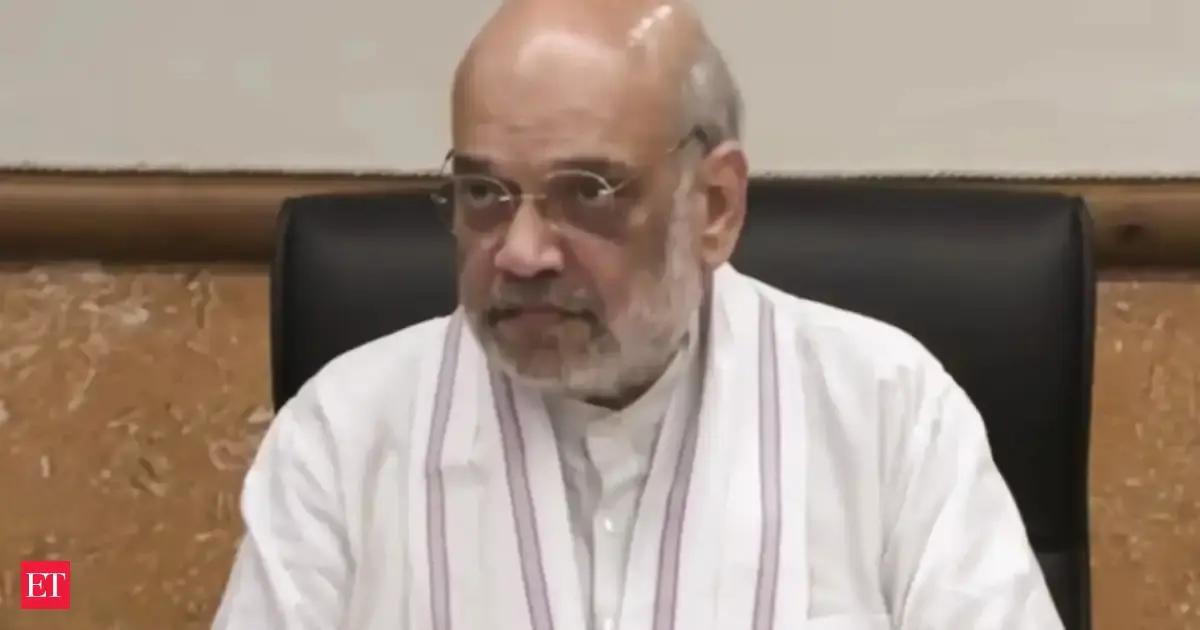
End of English raj? Amit Shah says English speakers will soon feel ashamed, the days are not very far
How did your country report this? Share your view in the comments.
Diverging Reports Breakdown
End of English raj? Amit Shah says English speakers will soon feel ashamed, the days are not very far
Union Home Minister Amit Shah advocated for prioritizing native languages over foreign ones to reclaim India’s linguistic and cultural identity. He envisioned a future where India leads with cultural self-confidence, conducting affairs in its own languages. Shah also emphasized instilling empathy in administrative training, moving away from colonial frameworks, and highlighted literature’s role in preserving Indian identity. The remarks were made during the launch of Main Boond Swayam, Khud Sagar Hoon, a book by former IAS officer Ashutosh Agnihotri. He also reiterated the importance of the ‘Panch Pran’ or five pledges outlined by PM Narendra Modi as part of India’s vision for its 100th year of independence in 2047.
Tired of too many ads? Remove Ads
Tired of too many ads? Remove Ads
PM Modi Panch Pran initiative
Amit Shah bats for empathy in administrative training
Literature keeps the flame of religion alive
Union Home Minister Amit Shah on Thursday emphasized the importance of reclaiming India’s linguistic and cultural identity , stating that native languages should take precedence over foreign ones in national life. He made these remarks during the launch of Main Boond Swayam, Khud Sagar Hoon, a book by former IAS officer Ashutosh Agnihotri.“In this country, those who speak English will soon feel ashamed — the creation of such a society is not far away. Only those who are determined can bring about change. I believe that the languages of our country are the jewels of our culture. Without our languages, we cease to be truly Indian,” Shah said as quoted by TOI . No foreign language can adequately convey the essence of our culture, history, or religion.He described this shift as a difficult but necessary effort, asserting that Indian society has the resolve to succeed. He envisioned a future where India conducts its affairs in native languages with pride and leads the world through cultural self-confidence.Shah called for a shift away from the influences of colonial rule and advocated for a society in which Indian languages are held in higher regard than English. He expressed confidence that a time will come when those prioritizing foreign languages will feel out of place in Indian society.Shah also reiterated the importance of the ‘Panch Pran’ or five pledges outlined by Prime Minister Narendra Modi as part of India’s vision for its 100th year of independence in 2047. These pledges include developing India into a fully modern nation, eradicating traces of colonialism, taking pride in cultural heritage, ensuring national unity, and instilling a sense of civic duty.“These pledges have become the shared commitment of 130 crore Indians. By 2047, we will be at the forefront globally, and our languages will be integral to that journey,” he stated.Addressing administrative practices, Shah highlighted the need to reform the training of civil servants. He argued that current models are still rooted in colonial frameworks and fail to prioritize empathy in governance.“There is a serious need to instill empathy in administrative training. Without it, governance cannot truly serve the people,” he said.On the role of literature, Shah described it as the sustaining force of Indian identity during periods of historical adversity. He noted that while political regimes changed over time, any threats to religion, culture, or literature were consistently met with public resistance.“Even in the darkest times, literature kept alive the flame of our culture, religion, and freedom. It is the soul of our society,” he concluded.(With inputs for TOI)
